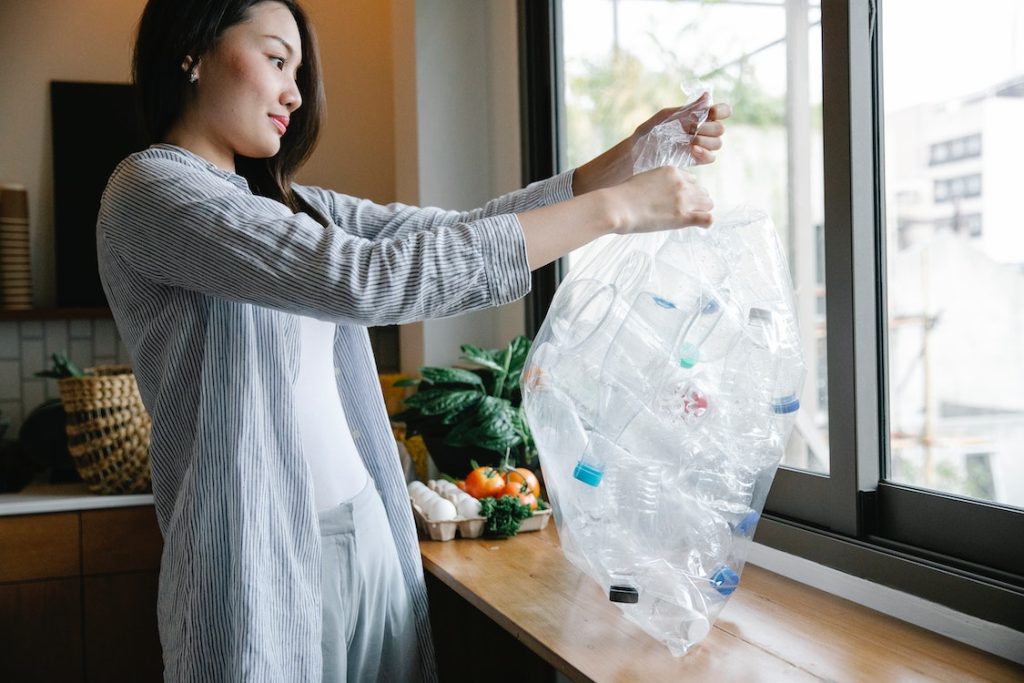Recycling helps preserve limited natural resources like fossil fuels and minerals for future generations by decreasing consumption. Recycling provides one effective means of conserving these essential resources for use today and tomorrow.
Manufacturing products using recycled materials is also more energy efficient than mining the earth for raw materials, saving the world both energy and resources in the process. Some environmentalists fear, however, that recycling may encourage excessive consumption.
Less Waste Going to Landfills and Incinerators

Recycling helps the environment by keeping materials out of landfills and incinerators where they would otherwise rot or burn, emitting potentially toxic chemicals into air, water and soil that can harm humans as well as animals. Recycling makes use of materials more sustainable by diverting them away from these polluting sites as well as making possible their repurposing into new products.
Landfills produce methane gas, an extremely powerful greenhouse gas. Methane emissions contribute to global warming and climate change while it devastates natural habitats, harming both wildlife and our planet’s ecology. Recycling helps decrease raw material usage such as timber, minerals and fossil fuels that deplete natural habitats and forests while simultaneously lessening human impact on Earth.
Incinerators emit pollutants as they burn garbage, and fugitive emissions (emissions from areas where waste collects before being sent into an incinerator stack) are released as well. Reusing materials reduces the need for these resources while simultaneously decreasing emissions into air and water systems containing potentially toxic chemicals.
Beginning recycling at home doesn’t need to be difficult! Just start by purchasing additional bins, and making it part of your routine to separate paper, plastic, glass and tin from regular trash. In addition, keep food scraps and yard waste separate so they can be composted separately – DSNY currently provides curbside collection of organic waste and food scraps with over 200 drop-off sites throughout New York. Compost materials produced through composting may then be used to create nutritious soil for gardens and farms or generate renewable energy generation.
Less Carbon Emissions

Recycling’s primary benefit lies in its reduced need to extract and process raw materials, thus conserving natural resources while helping prevent environmental pollution. Recycling aluminum requires 95% less energy than manufacturing it from raw materials; saving fossil fuels as well as greenhouse gas emissions while helping prevent deforestation and conserving water resources in the process.
Recycling not only reduces waste that ends up in landfills and incinerators, but it also lessens energy and resource needs like trees, water and minerals – contributing to less air and water pollution, lower carbon emissions, and an improved health environment for humans and animals alike.
Recycling helps prevent methane gas from seeping out of landfills into the atmosphere and contributing to global warming and ozone depletion, while it also prevents land degradation and wildlife habitat loss due to leakage from landfills.
Environmental Protection Agency research shows that producing goods using recycled materials emits significantly fewer greenhouse gases and saves on energy costs required to harvest, transport and process raw materials.
Recycling can make an important impactful statement about our society; however, to effectively address waste output. Recycling should only be part of an overall plan to lower our output; further reduction can be achieved through durable products, secondhand stores and purchasing cleaning and food supplies made from organic or recycled materials.
Recycling can also help alleviate local governments’ burden. In some cities, recycling accounts for 50-60% of their revenues – helping alleviate strain from property tax, sales taxes and income taxes.
Less Hazardous Waste
Home recycling reduces the need to extract raw materials from Earth, which helps preserve some of our most vital natural resources such as forests and rainforests which contain valuable timber, water and minerals. By decreasing demand for raw materials from Earth sources such as forests and rainforests, recycling helps protect animal habitats while giving the planet time to heal itself and flourish.
Recycling material means producing less hazardous waste. This is achieved by sending less products for treatment and disposal, thus decreasing the need for hazardous waste landfills or incinerators as well as energy used to power those facilities, and helping prevent pollutants from leaching into our soils, air or waters and polluting them further.
Recycling can also benefit the economy in numerous ways. Money saved from not needing to plant new forests, mine iron ore and purchase fossil fuels from foreign countries is invested back into our local economies – helping create jobs here as well. In fact, in certain cities recycling can account for as much as 50% of revenue for a city!
Many people assume they don’t generate enough waste to have an effect when it comes to recycling, but in reality our households create hazardous waste such as cleaning products, lawn chemicals, batteries and motor oil. By taking steps like using eco-friendly cleaners or purchasing from second hand stores or reusing plastic containers you can help do your part for the environment.
Less Water Pollution
Reducing waste helps protect waterways from polluted waters, protecting lakes, rivers and oceans while simultaneously helping wildlife. Plastic debris in particular poses threats to marine life that kill or harm marine life as well as soil contamination and human food chain contamination. Recycling reduces this issue.
Home recycling also contributes to water pollution prevention by decreasing the need for extracting new materials, which reduces forest clearing, conserves more water resources, and releases fewer harmful greenhouse gasses into the atmosphere.
Recycled materials are an energy-saving alternative to raw material production, saving both energy and raw material costs. Stanford University’s paper, glass, metal and plastic recycling program generated enough power for 613 households in one year alone!
Many individuals become more environmentally aware after becoming recyclers, leading them to take additional green steps such as composting, using non-reusable grocery bags less frequently, and shopping at secondhand stores. The more people that recycle, the better for our planet.
Recycling can play a vital role in local economies. Some cities rely heavily on recycling for much of their revenue; not only does recycling provide property tax income but it can also create jobs through collecting curbside recyclables, processing them further and selling them on to companies.
Though there is no magic solution to climate change, societal transformations such as increasing recycling and decreasing fossil fuel usage will play a crucial role. More recycling equals less pollution in our natural environments and the better life will be for everyone on Earth. Each person can do their part by learning more about recycling practices before making a pledge to recycle as often as possible at home and work.
Less Waste in the Ocean

Although recycling helps reduce waste that ends up in landfills and incinerators, some recyclable materials do end up in the ocean. This often occurs when recyclables are dumped directly into the sea or improperly discarded at beaches or other outdoor spaces – an especially problematic situation given that marine environments contain numerous forms of toxic trash and plastics which harm marine life, such as fishing gear, plastic bottles and bags, chemical detergents polluting water bodies, or detergents which pollute freshwater supplies that make life inaccessible for marine organisms.
One reason that marine pollution is so dangerous is because it alters ocean temperatures and acidity levels, making conditions unsuitable for marine organisms to live in. Climate change also has an adverse impact on ocean environments; rising sea levels may flood low-elevation cities around the world.
Recyclable materials can help minimize environmental degradation by contributing to a cleaner environment. From cutting carbon emissions by energy efficiency measures to keeping oceans free of litter, recycling is a significant step toward sustainability and should be prioritized at home.
If you want to learn how your home or business can recycle more effectively, you can check out load-n-lift.ca. With enough knowledge and support, you can take significant steps towards improving your recycling practices and making a positive impact on the environment.




